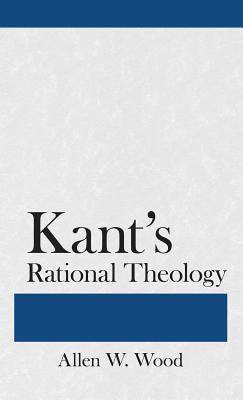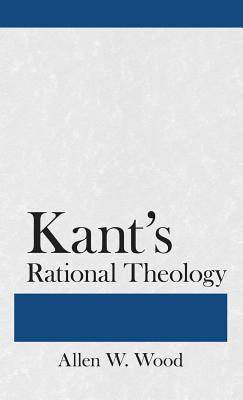
- Afhalen na 1 uur in een winkel met voorraad
- Gratis thuislevering in België vanaf € 30
- Ruim aanbod met 7 miljoen producten
- Afhalen na 1 uur in een winkel met voorraad
- Gratis thuislevering in België vanaf € 30
- Ruim aanbod met 7 miljoen producten
Omschrijving
In Kant's Rational Theology, Allen W. Wood explores Kant's views on the concept of God and on the attempt to demonstrate God's existence. "We cannot have a full or balanced understanding of Kant's thought on religious subjects," he writes, "as long as we fail to take account of his reflections, often exceedingly abstract, obscure, and subtle, concerning the rational origin, content, and status of our concept of a supreme being."The importance of this aspect of Kantian thought, according to Wood, lies in its originality, in its historical influence, and in the insights it affords into the tradition of rational theology in medieval and modern philosophy. He believes that it also provides a means of understanding Kant's work as a whole and of achieving a proper appreciation of the contents of Kant's moral faith.The author focuses on Kant's chapter on the ideal or pure reason from the Critique of Pure Reason and also discusses other Kantian writings (especially the Lectures on Philosophical Theology, the Critique of Judgment, and several of Kant's precritical essays) where the topic of rational theology is prominent. A concise recapitulation and critical assessment of Kant's more speculative theses, this book is a complement to Wood's earlier book, Kant's Moral Religion.
Specificaties
Betrokkenen
- Auteur(s):
- Uitgeverij:
Inhoud
- Aantal bladzijden:
- 160
- Taal:
- Engels
Eigenschappen
- Productcode (EAN):
- 9780801412004
- Verschijningsdatum:
- 31/01/1979
- Uitvoering:
- Hardcover
- Formaat:
- Genaaid
- Afmetingen:
- 140 mm x 216 mm
- Gewicht:
- 349 g

Alleen bij Standaard Boekhandel
Beoordelingen
We publiceren alleen reviews die voldoen aan de voorwaarden voor reviews. Bekijk onze voorwaarden voor reviews.











